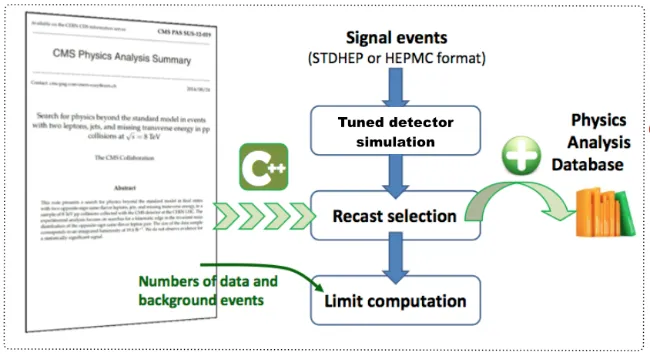Particle physics is currently living an exciting time. The discovery of a Higgs boson 5-6 years ago corresponds to one of the long-waited physics objectives of the Large Hadron Collider at CERN, as explained for instance here.
Today, a few years later, the Run 2 of the LHC will be ongoing for a few extra months, and after a long shutdown, operations will (normally) restart in 2021 for a third run of data taking. The results to be collected in the next years hence promise a greater understanding not only of the Standard Model of particle physics, but also of what lies beyond it. I recall that it is pretty clear that something must lie beyond the Standard Model.

[image credits: Pixabay (CC0)]
Today, no compelling evidence for any phenomenon beyond the Standard Model has been seen, even if the LHC collaborations have tried to dig a signal out of hundreds (and most probably thousands) different search strategies.
As a result, more and more severe constraints are imposed on many classes of theories extending the Standard Model. However, those constraints are often imposed in well-defined (and often popular) contexts, which introduces strong biases.
There are however a plethora of theories that deserve to be tested and there is not enough experimental resources to try out all possible theoretical options. This is where theorists can play a role through the analysis of LHC collision simulations in new particle physics theories and the assessment of the impact of the existing analyses on these theories.
AN OPEN SOURCE PLATFORM FOR LHC RESULT PRESERVATION
A few years ago, I have decided to tackle this problem that is strongly connected to the preservation of the results of the LHC experiments. My vision (that is actually shared by others as well) is that one wants to be able to confront, even in 5 or 10 years from now, any theory to LHC data.
With a handful of collaborators, we have developed a generic framework in which many LHC analyses can be reimplemented, so that their results can be quickly compared to predictions of any model. Even at that time, we already pushed for a totally open source choice where anyone can contribute in a very simple way by adding new LHC analyses to our database.
However, for some reasons, physicists are very happy in using existing codes, but the majority of them often prefers to avoid to implement anything. People are therefore needed to make this plan working!
This is where both Utopian and SteemSTEM (and thus Steem) could potentially come into the game.
PARTICLE PHYSICS ON UTOPIAN?
Yes, you read it right. I assume that there are people here who would be interested in contributing to state-of-the-art science and in helping us to advance our understanding on how the universe works.
Maybe ambitious, but doable!

[image credits: homemade]
Why am I assuming this? Because the tasks that must be addressed are not incredibly complicated (the framework is there). They consist in:
- reading (and understanding; I will help for this) an LHC experimental paper;
- implementing the corresponding analysis in an existing C++-based framework;
- validating the implementation.
This last point is actually the toughest, as things rarely work from the first try.
This requires some basic knowledge in particle physics (this part I can help) as well as some knowledge in C++ (I assume some C++ developers lie around here ^^).
Would anyone be interested in giving it a try? This could be a funny (okay physics is actually always funny!) and novel way to contribute to particle physics research from the outside.
Note that I have already some vague ideas about how to implement this project in practice, but the first step is to probe whether there are interested people.